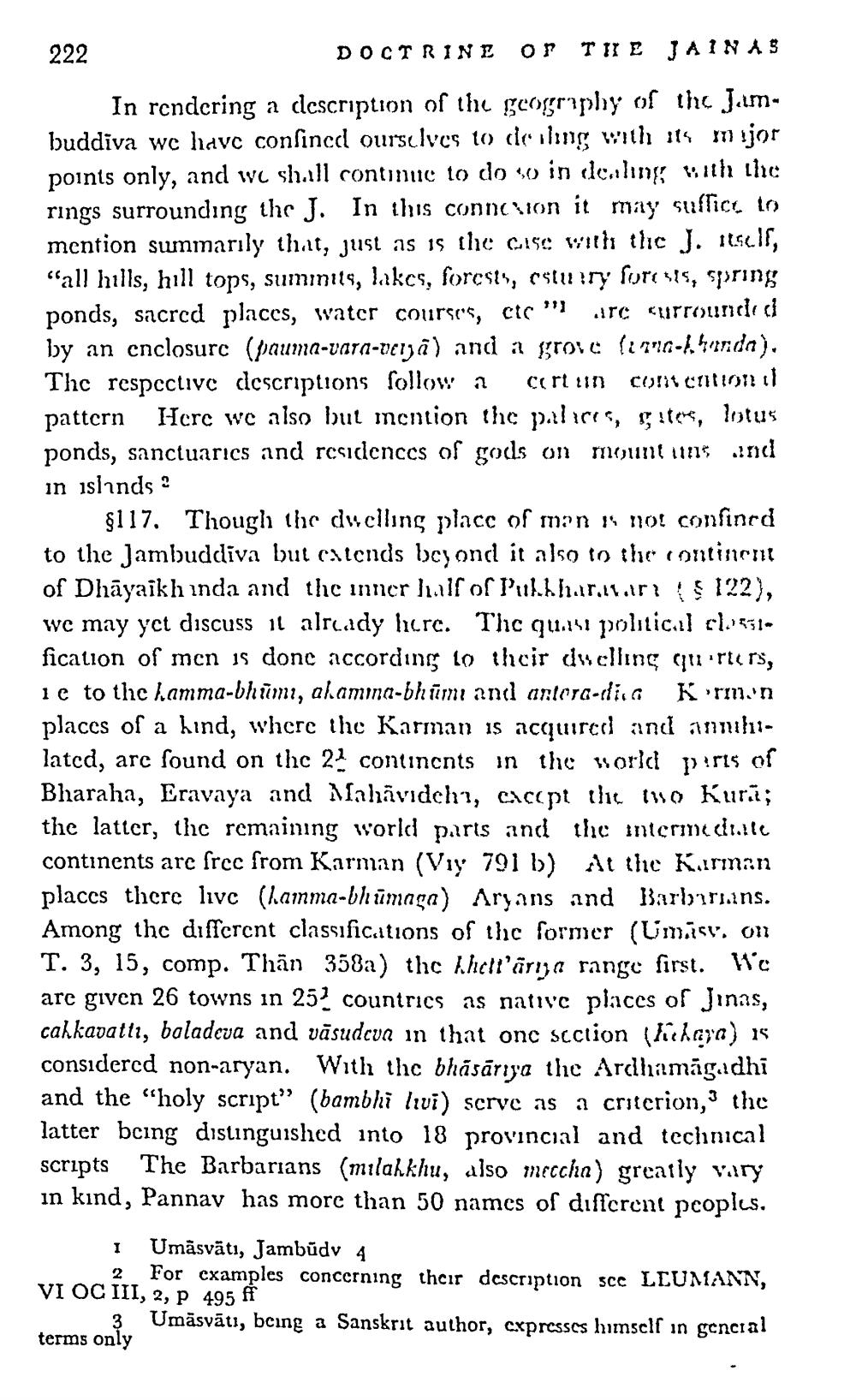________________
222
DOCTRINE or THE JAINAS
In rendering a description of the geography of the Jambuddiva we have confined ourselves to dealing with its major points only, and we shall continue to do so in dealing with the rings surrounding the J. In this connexion it may suffice to mention summarily that, just as is the case with the J. itself, "all hills, hill tops, summits, lakes, forests, estuary forests, spring ponds, sacred places, water courses, etc " are surrounded by an enclosure (pauma-vara-verza) and a grove (vana-khanda). The respective descriptions follow a cert un
contention d
pattern Here we also but mention the palices, gates, lotus ponds, sanctuaries and residences of gods on in islands?
mount uns and
§117. Though the dwelling place of man is not confined to the Jambuddiva but extends beyond it also to the continent of Dhayaikh inda and the inner half of Pukkharavar (§ 122), we may yet discuss it already here. The quasi political classi fication of men is done according to their dwelling quarters, 1e to the hamma-bhūmi, akamma-bhūmi and antera-dica Krmen places of a kind, where the Karman is acquired and annihilated, are found on the 22 continents in the world parts of Bharaha, Eravaya and Mahāvideh, except the two Kura; the latter, the remaining world parts and the intermediate continents are free from Karman (Viy 791 b) At the Karman places there live (lamma-bhūmaga) Aryans and Barbarians. Among the different classifications of the former (Umásy, on T. 3, 15, comp. Than 358a) the khett'arya range first. We are given 26 towns in 252 countries as native places of Jinas, cakkavattı, baladeva and vasudeva in that one section (haya) is considered non-aryan. With the bhasariya the Ardhamāgadhi and the "holy script" (bambhi livi) serve as a criterion, the latter being distinguished into 18 provincial and technical scripts The Barbarians (milakkhu, also meccha) greatly vary in kind, Pannav has more than 50 names of different peoples.
I
Umäsväti, Jambudv 4
For examples concerning their description see LEUMANN, VI OC III, 2, P 495 ff
2
Umäsvāti, being a Sanskrit author, expresses himself in general
3 terms only




